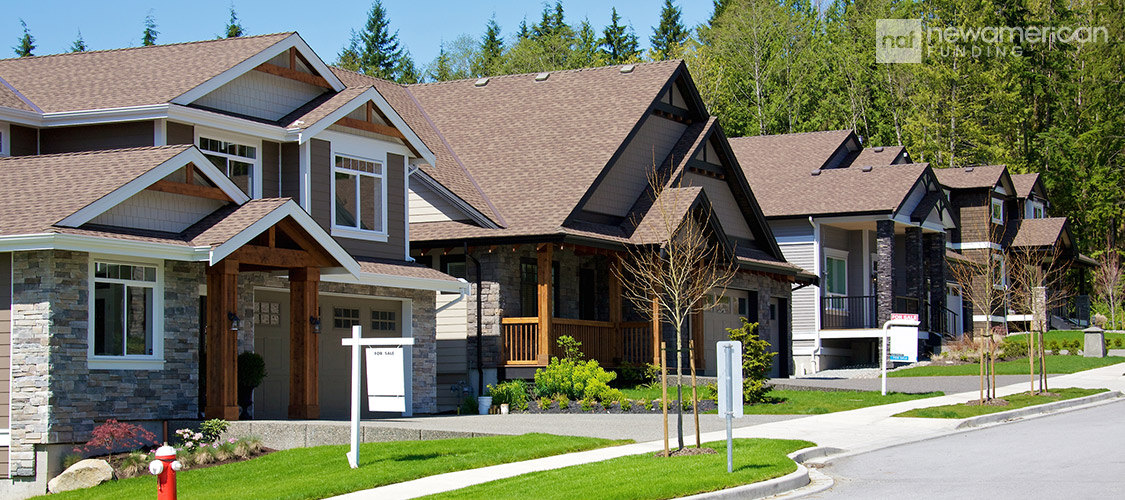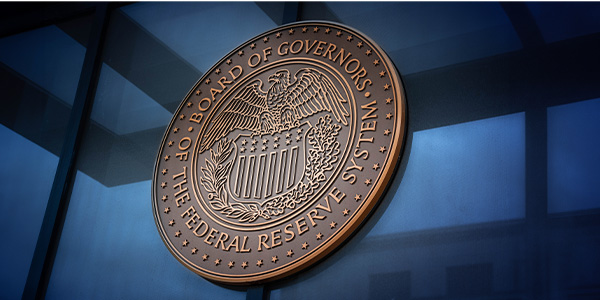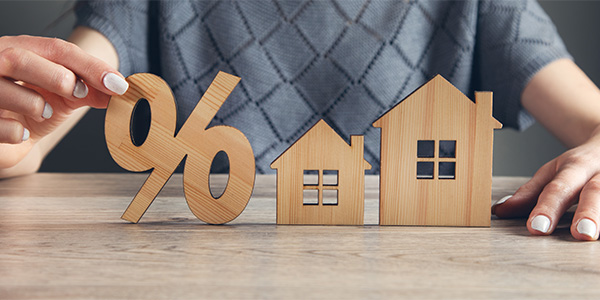Housing News
Mortgage Rates are High. Why Buyers Should Consider Purchasing a Home Anyway
June 18, 2024
Buying a home at a time when both prices and mortgage rates may be uncomfortably high may seem like insanity to some cost-conscious buyers. However, it could wind up being a financially savvy decision.
When mortgage rates fell last month after the U.S. Federal Reserve cut interest rates, there was more competition in the housing market over a limited number of homes for sale. However, mortgage rates have since climbed back up—and that may not be a bad thing for aspiring homebuyers.
More eager buyers are expected to jump back into the market when mortgage rates come down. That is likely to usher in the return of bidding wars and offers over asking price, driving home prices even higher.
"Right now is a good time to buy if you find the right home that fits your needs," said Ken Johnson, a real estate economist at Florida Atlantic University in Boca Raton. "In the long-term, it's hard to make a wrong ownership decision. Five or 10 years down the road, it will look like a genius decision. Prices really do go up."
The big caveat is that buyers should be able to comfortably afford the home and their monthly mortgage payments. They should still have enough left over to save for retirement, emergencies, and unexpected expenses, as well as go out once in a while.
Mortgage rates had fallen to the low 6% range last month in anticipation of the Fed's rate cut, according to data from Mortgage News Daily. However, mortgage rates rose to 6.62% on Oct. 7 after the jobs report was released showing that unemployment had ticked down in September. The Fed had slashed rates by half a percentage point on Sept. 18 in part to keep the economy on track.
However, the lower unemployment numbers give the Fed less ammunition to continue aggressively cutting rates, which means mortgage rates could remain higher for longer.
That's likely to dissuade some buyers for shopping for a home—and could help to keep home prices from shooting up.
"It might be much better today to lock in that mortgage payment," said Johnson. "There's no reason to expect you're going to wake up one day and see much lower home prices."
1. There is less competition in the housing market
One of the biggest perks of buying a home when rates are high is that there isn't as much competition in the market. Many shoppers have been priced out. Others have been sidelined.
So those heated pandemic-era bidding wars, when dozens of buyers battled it out over a modest home that sold for more than six figures over the asking price, are now a thing of the past in many areas.
"You don't have to outbid as many people," said Johnson. "Your price should therefore be lower."
In addition, buyers have a bit more time to determine if this is the right home for themselves and their families.
"Buying back in the pandemic you had 10 minutes to make a decision," said real estate broker Matt Curtis of Matt Curtis Real Estate in Huntsville, Alabama. "Now you have a chance to breathe. You can actually think through your decision."
2. More homes are going up for sale

For years, a hallmark of the housing market has been the dearth of homes for sale. However, buyers are finally seeing more home listings in many parts of the country.
More housing inventory typically keeps prices in check. It's when there are fewer homes for sale that prices typically spike.
"There's more listings, more homes, more options to choose from," said Matt Curtis.
3. Buyers may be able to score lower home prices
With more homes making their way onto the market, prices have been flattening in some cities and coming down in others. That has been true in parts of Texas and Florida.
In addition, a larger percentage of sellers are cutting prices, according to Realtor.com.
However, it depends on where someone is looking to buy. Other areas, particularly in the Northeast and Midwest, may still be experiencing rising prices.
4. Home sellers may be more open to negotiations

As fewer folks queue up to attend open houses, the pressure for buyers to waive every contingency and promise to name their firstborn children after the sellers has largely subsided.
"Buyers have more bargaining power," said real estate broker Bryan Curtis of Attain RE. He is based in the Des Moines suburb of Clive, Iowa.
Sellers of homes that are sitting on the market for longer may be willing to negotiate with buyers. This could include making repairs, buying down the purchaser's mortgage rate, or even coming down on the price.
"[Buyers] don't have to waive inspections and appraisals," said Bryan Curtis.
5. Builders are lowering prices and buying down mortgage rates
Builders are also offering incentives to entice buyers struggling with affordability.
Some are lowering prices, contributing to closing costs, and offering upgrades.
In one case, a builder in the Huntsville area was offering mortgage rates as low as 4.99% for the life of a 30-year, fixed-rate loan, said Matt Curtis.
6. Buyers can refinance when mortgage rates fall
Those who buy homes when rates are high aren't stuck with those rates forever if they come down. Homeowners can always look to refinance.
The U.S. Federal Reserve may continue to cut rates if inflation comes down even more or if the economy seems shaky. That will likely result in lower mortgage rates.
Typically, existing homeowners refinance when interest rates decrease by at least two percentage points, says Johnson.
"As rates fall through time, people who have bought during periods of higher interest rates, they have refinanced," said Johnson.






 Smart Moves Start Here.
Smart Moves Start Here.